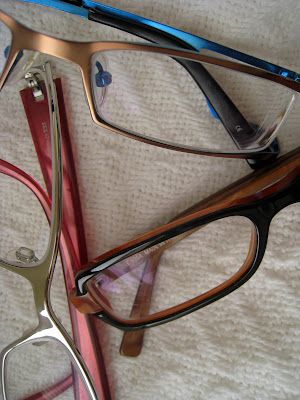
Approximately 80years old, rotund, and wearing a pair of silver, wire framed glasses, he says to me: ‘nice frames’.
Two days later, he notices that I’m wearing a different pair of glasses and says, ‘what are you, a plutocrat?’
A plutocrat is a person who exercises power by virtue of wealth. And, although in no way was I trying to reign over this man, nor flaunt the few dollars I make each hour, he perceived my two pairs of glasses as both.
But I ask myself, ‘would it be wrong of me to display wealth?’
In a capitalist society such as America, where money is directly correlated with success, and success is a measure of one’s fitness (see: Darwin), purchased objects are merely a means of communicating the following to another: I’ve worked hard, and this is what I have to show for it. Displaying wealth is not wrong.
As for using one’s wealth to control a group of people, of course this is wrong. Power in the hands of the rich. Never good. For, I’d have no power in this world.












